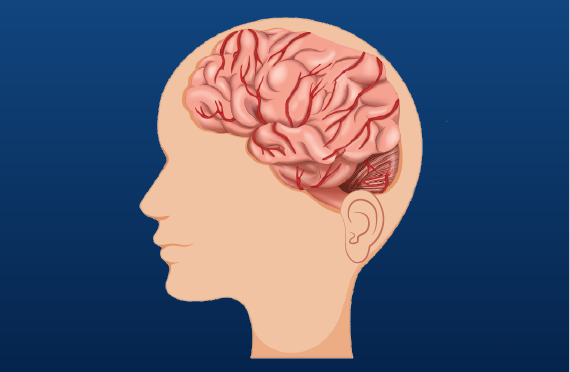CAPD

CENTRAL AUDITORY PROCESSING DISORDERS (CAPD):
Some children have central auditory processing difficulties despite their intact peripheral hearing. This can, in turn, affect their ability to follow instructions and understand conversation especially in noisy environments. It can also have a negative impact on their academic performance.
DOES YOUR CHILD HAVE SHORT ATTENTION SPAN, IS EASILY DISTRACTED AND HAS DIFFICULTY FOLLOWING DIRECTIONS?
Beneath the academic, emotional, and social aspects of language and learning disabilities lies a mild neurological dysfunction related to auditory processing functions. It is essential to know that not all the hearing is done in the ear. In fact, the ear merely brings in all the environmental sounds human beings can hear and delivers them to the brain where they are analyzed and processed. If the brain is unable to perform these functions efficiently, the child will suffer from what is known as Central Auditory Processing Disorders (CAPD). Despite the significance of these disorders, children with CAPD often go undiagnosed and untreated.
WHAT IS MEANT BY THE TERM "CENTRAL AUDITORY PROCESSING?"
Central auditory processing is defined as "what we do with what we hear." In other words, it is the ability of the brain (i.e., the central nervous system) to process incoming auditory signals. The brain identifies sounds by analyzing their distinguishing physical characteristics frequency, intensity, and temporal features. These are features that we perceive as pitch, loudness, and duration. Once the brain has completed its analysis of the physical characteristics of the incoming sound or message, it then constructs an "image" of the signal from these component parts for comparison with stored "images." If a match occurs, we can then understand what is being said or we can recognize sounds that have important meanings in our lives (sirens, phone rings, doorbells, crying, etc.). Many neurocognitive functions are involved in the processing of auditory information e.g., auditory attention, auditory memory and language representation.
WHAT IS CENTRAL AUDITORY PROCESSING DISORDER (CAPD)?
CAPD can be defined as a deficiency in any one or more of the neurocognitive functions mentioned above. There is no one cause of CAPD. In many children, it is related to maturational delays in the development of the important auditory centers within the brain. Often, these children's processing abilities develop as they mature. In other children, the deficits are related to benign differences in the way the brain develops. These usually represent more static types of problems (i.e., they are more likely to persist throughout the individual's life).
Difficulty hearing in noisy situations
Difficulty following long conversations
Difficulty hearing conversations on the telephone
Difficulty learning a foreign language or challenging vocabulary words
Difficulty remembering spoken information (i.e., auditory memory deficits)
Difficulty taking notes
Difficulty maintaining focus on an activity if other sounds are present (child is easily distracted by other sounds in the environment).
Difficulty with organizational skills
Difficulty following multi-step directions
Difficulty in directing, sustaining, or dividing attention
Difficulty with reading and/or spelling
Difficulty processing nonverbal information (e.g., lack of music appreciation)
WHAT ARE THE PROBLEM AREAS FOR KIDS WITH CAPD?
The following are the main problem areas that can affect both home and school activities in children with CAPD.
1.AUDITORY ATTENTION PROBLEMS:
This is when the child can't maintain focus for listening long enough to complete a task or requirement (such as listening to a lecture in school).
2.AUDITORY FIGURE-GROUND PROBLEMS:
This is when the child can't pay attention when there's noise in the background. Noisy, low-structured classrooms could be very frustrating to this child.
3.AUDITORY DISCRIMINATION PROBLEMS
This is when the child has difficulty hearing the difference between sounds or words that are similar (COAT/BOAT or CH/SH). This problem can affect following directions, reading, spelling, and writing skills, among others.
4.AUDITORY MEMORY PROBLEMS:
This is when the child has difficulty remembering information such as directions, lists, or study materials. It can be immediate and/or delayed (word retrieval / word finding difficulties ").
5.AUDITORY COHESION PROBLEMS:
This is when higher-level listening tasks are difficult. Auditory cohesion skills - drawing inferences from conversations, understanding riddles, or comprehending verbal math problems - require heightened auditory processing and language levels. They develop best when all the other skills (levels one through four above) are intact as well.
AUDIOLOGICAL ASSESSMENT FOR CAPD:
It is important that each person being tested receive a routine hearing test to rule out the existence of any peripheral hearing difficulty. CAPD test then follows. These tests include behavioral as well as electrophysiological tests. The selection of tests depend upon a number of factors; among which are the age of the child, the specific auditory difficulties the child displays, the child's native language and cognitive status (central auditory processing assessments may not be appropriate for children with significant developmental delays and / or cognitive deficits).
THERAPY:
Therapy includes auditory training, language therapy and academic support. Some modifications in the surrounding environment can be also of great help.
 >
>